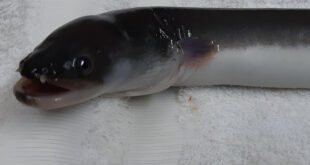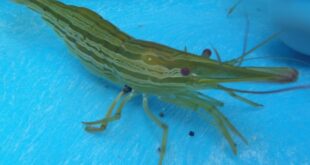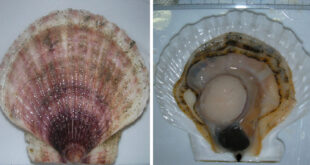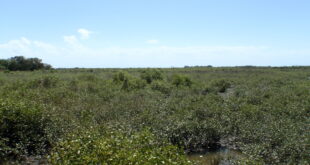By Development Communication Section

Dr. Carlo Lazado discussed the results of his doctorate thesis “Molecular basis of daily rhythmicity in fast skeletal muscle of Atlantic cod (Gadus morhua)” at SEAFDEC/AQD’s in-house research seminar on 24 October.
Circadian or biological clocks are time-keeping systems that enable organisms to adjust behavior and physiology to the daily light-dark cycles. In vertebrates, these circadian clocks are located in central (e.g. pineal gland) and peripheral structures (e.g. muscle). According to Dr. Lazado, there has been an increasing interest in studying peripheral clocks since they can have direct control over biochemical and physiological processes in their respective tissues.
In his thesis, he found out that the Atlantic cod has multiple copies of clock genes wherein eight displayed daily rhythmicity in the fast skeletal muscle. He also found out that the molecular clock in skeletal muscle was not autonomous, in relation to the central clock, as reflected in the cell and tissue culture models. Dr. Lazado explained to SEAFDEC/AQD research staff that the daily light-dark cycle had a remarkable influence on the transcriptome (set of all RNA molecules produced in one or a population of cells) of the skeletal muscle. He also observed that genes that displayed daily rhythmicity are involved in muscle growth & development, metabolism, protein processing and structural integrity.
Therefore, this study paved the way to better understand the importance of peripheral clocks especially in the physiology of skeletal muscle in teleosts (ray-finned fishes).
Dr. Lazado finished both his doctorate degree in aquatic biosciences and master’s degree in aquaculture at the University of Nordland (UiN), Norway.

 SEAFDEC/AQD Southeast Asian Fisheries Development Center | Aquaculture Department
SEAFDEC/AQD Southeast Asian Fisheries Development Center | Aquaculture Department



